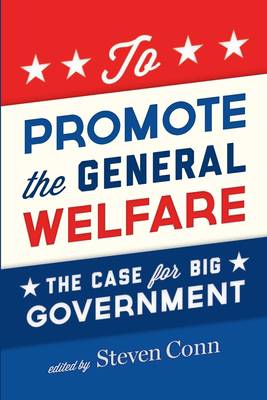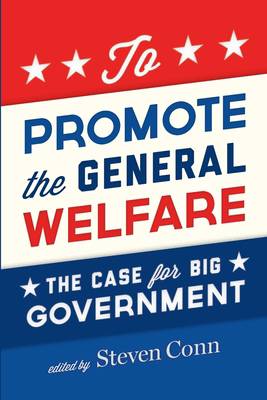
- Retrait gratuit dans votre magasin Club
- 7.000.000 titres dans notre catalogue
- Payer en toute sécurité
- Toujours un magasin près de chez vous
- Retrait gratuit dans votre magasin Club
- 7.000.000 titres dans notre catalogue
- Payer en toute sécurité
- Toujours un magasin près de chez vous
48,45 €
+ 96 points
Description
Americans love to hate their government, and a long tradition of anti-government suspicion reaches back to debates among the founders of the nation. But the election of Barack Obama has created a backlash rivaled only by the anti-government hysteria that preceded the Civil War. Lost in all the Tea Party rage and rhetoric is this simple fact: the federal government plays a central role in making our society function, and it always has. Edited by Steven Conn and written by some of America's leading scholars, the essays in To Promote the General Welfare explore the many ways government programs have improved the quality of life in America. The essays cover everything from education, communication, and transportation to arts and culture, housing, finance, and public health. They explore how and why government programs originated, how they have worked and changed--and been challenged--since their inception, and why many of them are important to preserve. The book shows how the WPA provided vital, in some cases career-saving, assistance to artists and writers like Jackson Pollock, Dorothea Lange, Richard Wright, John Cheever, and scores of others; how millions of students from diverse backgrounds have benefited and continue to benefit from the G.I. Bill, Fulbright scholarships, and federally insured student loans; and how the federal government created an Interstate highway system unparalleled in the world, linking the entire nation. These are just a few examples of highly successful programs the book celebrates--and that anti-government critics typically ignore. For anyone wishing to explore the flip side of today's vehement attacks on American government, To Promote the General Welfare is the best place to start.
Spécifications
Parties prenantes
- Auteur(s) :
- Editeur:
Contenu
- Nombre de pages :
- 256
- Langue:
- Anglais
Caractéristiques
- EAN:
- 9780199858552
- Date de parution :
- 02-08-12
- Format:
- Livre broché
- Format numérique:
- Trade paperback (VS)
- Dimensions :
- 137 mm x 206 mm
- Poids :
- 272 g







